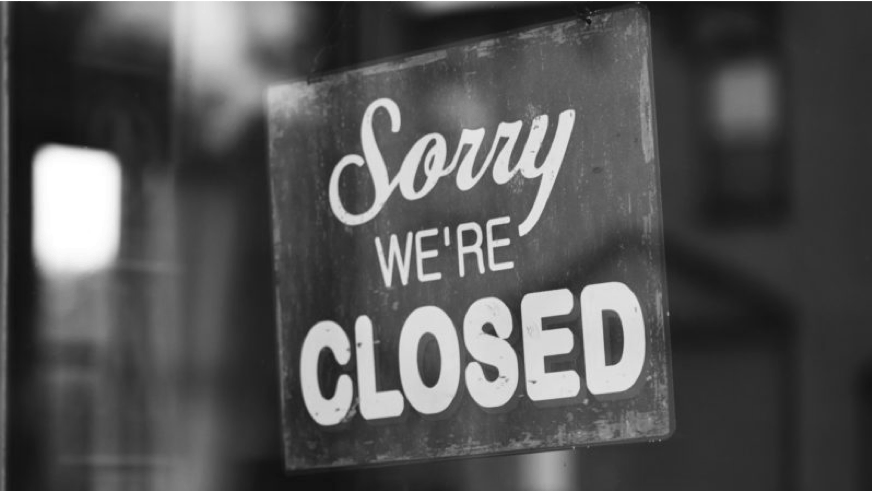Bottom of the food chain: Why the closure of UK franchise restaurants is on the rise

You’re better than that
Jean-Paul Sartre said “hell is other people”. But that’s only because he died before the invention of The Aberdeen Angus Steakhouse chain.
That’s not to say that this franchise should be singled out. Or that all chains are bad. Because they’re not. In fact there are a few - which often have short menus and simple concepts as their common ground - where the food is enjoyable.
But there’s so much wrong with some of them, that when people question why they’re closing en masse, my first thought is that it’s because they don’t deserve to stay open.
To use an analogy, if you happened to be scrolling through Tinder, then unless you have an uncommon fetish, you’re not going to seek out the most drab and generic-looking person you can find. (You’ll be looking for a hot date that might admittedly set you back a few more quid)
So why visit the identikit room of a franchise with the character of a padded cell, tinnily piping out the Light House Family or some such while defrosted plates of bought-in food are served up to you?
This isn’t giving you a restaurant experience geared towards pleasing your senses; it’s saving you a trip to the supermarket.
It’s also worth remembering as a note of caution that the relationship between the diner and the dining room is osmosis-like; when you’re surrounded by a confection of lovelessly assembled parts your form will drop and you’ll become worse company for your friends, colleagues or family. I exclude a date companion from this list as you should never suggest or accept a date to a chain restaurant.
You’re immediately declaring yourself bad in bed. People with carnal skills bring more imagination.
At any rate, people (especially in the capital) are turning their backs on chains because they find them to be lacklustre.
This is rarely the fault of the staff and it’s a sad state of affairs that they are losing their jobs in droves. I worked as a pot washer one summer as a teenager. I was under the charge of a senior pot washer who had mystical powers of stain removal and who kept a metal detector in his car, the reasons for which I was never availed of. But anyone who can keep pace with the back breaking work in a kitchen over a long period of time deserves respect.
Frequently in chain restaurants, the staff are hamstrung by everything-under-the-sun pastiche menus, poor produce and private equity edicts on portion control. Good food usually requires freedom of expression, quality ingredients and generosity.
False Economy and Soaring Costs
I still totally understand that meals in chains appeal as they are (usually) inexpensive and plenty of people want to eat out without splashing too much of their hard earned cash. But something being cheap isn’t the same as it being good value. Seven quid for a terrible pizza is still a waste of money in my opinion, while a tenner for a delicious one is a good investment. And I’d rather budget by cutting out the dross and saving for the good stuff.
There are, of course, other, more deep-seated reasons why franchises are failing. Buoyed by cheap credit and outside investment, they avariciously grew too quickly, offering a volume of restaurants which outstripped the demand. This saturation was exacerbated by the rise of new franchises entering the market.
Outside of London, the dwindling high street became lined with chain restaurants which are now Units To Let. Increasing rents and business rates delivered a further fatal blow, creating an environment in which only the most robust chains can prosper.
This shrinking of the field exacerbates the homogeneity of what remains. There are high streets and train stations in London where you can find 2 branches of the same fast food outlet within a few doors of each other.
This brings a new meaning to being spoilt for choice. What will swing it for you now? Will you go for the site with the more healthily stocked condiments section or the one with fewer thumb smears on the self-order screen? (Although you can always get some wet wipes from one of the two branches of the same pharmacy which are also quite possibly both in front of you)
The rise in home delivery services has also been severely damaging for chains. That’s largely down to the convenience of having your food brought to you. And why wouldn’t you? It beats getting your swag on and heading out for penne arrabbiata under the strip lights that tastes of nihilism.
Brexit and the Rise of the Foodie
Unforeseeable for franchises was the fall out from Brexit. Its impact on the exchange rate and the nervousness it created in how consumers spend their discretionary pound heralded a further loss of business. Apprehensive about the future, foreign staff who have been the lifeblood of the restaurant industry are falling in numbers. And so a shortage in labour will lead to a rise in wage costs which will be compounded by an increase in the minimum wage.
Which means the already wafer thin profit margins restaurants rely upon will further ebb away, bringing more closures of chain outlets by the end of the year. So put some potato wedges on your Christmas list.
Ever since the recession of 2008, the independent resturants and smaller chains that survived had to become increasingly competitive in their pricing. And so there are many great restaurants in control of their own food and aesthetic which offer set menus and lunchtime specials that can rival (or come very close to rivalling) the cost of eating in many chains.
These are places where you can feel the passion in the cooking. Where you can feel the identity and the spirit of the owners in the design. Where taking your date will make it much more likely you’ll get laid.
And so naturally, these places, too, have contributed to the decline in franchises.
In the end, almost every restaurant under the sun faces ferocious competition and profligate moving parts. And I always think any prospective or existing restaurant should ask itself the following two questions:
Are they cooking food in a pleasant environment that the customer hasn’t got the skills to make? Are they cooking food that’s too laborious for the customer to be bothered to make?
If the restaurant can’t answer yes to at least one of those questions, then in terms of its longevity, it’s playing with fire.

